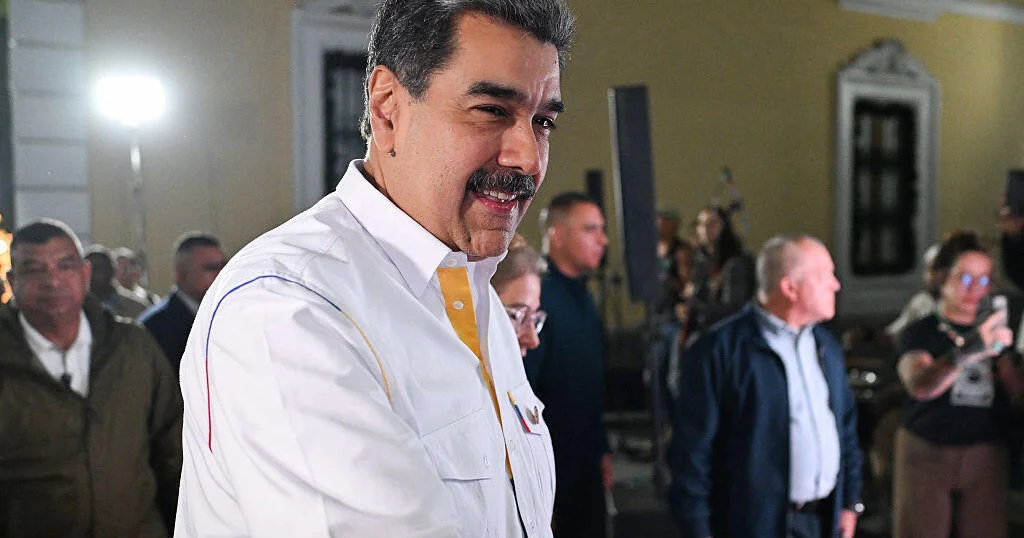In a significant escalation of tensions, the Trump administration is considering a controversial operation that could involve dropping leaflets on Caracas, the capital of Venezuela. This initiative aims to destabilize the regime of Venezuelan President Nicolás Maduro, a move that amplifies existing U.S. pressure tactics. Reports suggest that the proposal was discussed as part of a broader strategy on Maduro’s birthday, highlighting the urgency and seriousness with which U.S. officials are approaching Venezuela’s political crisis.
| Article Subheadings |
|---|
| 1) Outline of Proposed Operations in Venezuela |
| 2) Military Build-Up in the Region |
| 3) Responses from Maduro and His Administration |
| 4) Context of U.S. Military Engagement |
| 5) Implications of Increased U.S. Pressure |
Outline of Proposed Operations in Venezuela
The discussions regarding the leaflet drop were primarily centered around employing psychological warfare tactics to influence the Venezuelan populace against President Nicolás Maduro. Officials highlighted that this initiative, aimed at promoting dissent, was only one of several options being considered by the Trump administration. The method of psychological engagement aligns with broader U.S. strategies previously utilized in various geopolitical contexts.
The operational specifics remain unclear, with no final approval yet granted for the execution of such measures. However, the suggested timing could not be more poignant, occurring on Maduro’s 63rd birthday. This aspect demonstrates an intentional leverage of symbolic significance, indicating the administration’s tactical awareness of political morale within Venezuela.
Military Build-Up in the Region
Over recent months, U.S. military presence in the region has noticeably intensified. Approximately 15,000 U.S. troops are currently positioned in close proximity to Venezuela, reinforcing the notion that military action could be on the table if diplomatic efforts fail. Reports indicate that the Pentagon has conducted at least 21 military strikes since September, primarily targeting drug trafficking networks said to operate under Maduro’s regime.
Among the forces deployed, the U.S. Navy has strategically positioned several advanced military vessels, including the USS Gerald R. Ford, the latest aircraft carrier in the fleet. Additionally, other destroyers and cruisers are stationed in the Caribbean and the Atlantic, indicating readiness for various operational scenarios. This position underscores the extent of U.S. commitment to countering what it perceives as an increasingly dangerous regime in Caracas.
Responses from Maduro and His Administration
In light of the escalating tensions, President Nicolás Maduro has publicly expressed a willingness to engage in direct discussions with President Trump. This indication adds a layer of complexity to the situation, as it reflects a willingness to negotiate on Maduro’s part, even as he faces intensified external pressure. The dichotomy of a leader open to dialogue but simultaneously fortified against military actions forms a challenging narrative for U.S. policymakers.
Maduro’s government has consistently dismissed U.S. actions as provocations, framing them within a narrative of foreign interference and imperialism. The combination of internal propaganda and international geopolitical maneuvering presents a formidable challenge to U.S. initiatives aimed at destabilizing his leadership.
Context of U.S. Military Engagement
The military strikes carried out in the Caribbean and Eastern Pacific have ostensibly targeted vessels linked to drug trafficking. However, U.S. defenses have been criticized for lacking sufficient evidence to confirm that those targeted were indeed drug-laden. This ambiguity surrounding the legitimacy of military actions could complicate both domestic support for these operations and the broader international perception of U.S. interventions.
Critics argue that without clear objectives, such military escalations may lead to unintended consequences, including further entrenchment of Maduro’s power within Venezuela. The historical implications of U.S. interventions in Latin America also raise questions about the long-term viability and efficacy of such tactical engagements.
Implications of Increased U.S. Pressure
The compounded U.S. strategies against Maduro’s regime embody deeper geopolitical stakes. Many observers note that the U.S. is not merely responding to Venezuela’s internal political strife; rather, it is addressing a broader concern of influence from rival states such as Russia and China in the Western hemisphere. Therefore, recent escalations have far-reaching implications that stray beyond the confines of Venezuela itself.
As the Trump administration continues to advance its agenda, the realities on the ground in Venezuela could lead to a critical tipping point. The U.S. faces the challenge of balancing aggressive foreign policy measures while avoiding scenarios that could lead to larger-scale military conflict or humanitarian crises within the nation itself.
| No. | Key Points |
|---|---|
| 1 | The Trump administration is considering psychological operations including leaflet drops in Caracas. |
| 2 | Military buildup in the region includes approximately 15,000 U.S. troops and advanced naval vessels. |
| 3 | Maduro signaled openness to discuss potential resolutions with the Trump administration. |
| 4 | Pentagon strikes have reportedly targeted drug-related vessels but lack conclusive evidence. |
| 5 | U.S. interventions reflect broader geopolitical concerns regarding global influence in Latin America. |
Summary
The evolving situation in Venezuela illustrates a potent blend of psychological tactics and military posturing by the U.S. as it seeks to influence the Maduro regime. The implications of these actions extend beyond Venezuela, revealing deeper geopolitical dynamics that place U.S. interests at a critical crossroads. As tensions reach a boiling point, the approach taken by U.S. officials will likely shape the immediate future of not only Venezuela but also the broader region.
Frequently Asked Questions
Question: What is the purpose of dropping leaflets in Venezuela?
The proposed leaflet drops aim to exert psychological pressure on the Venezuelan populace to foster dissent against President Nicolás Maduro.
Question: How has the military presence in the region changed recently?
The U.S. has increased its military presence, deploying approximately 15,000 troops and advanced naval vessels to the Atlantic and Caribbean as part of strategic engagements with Venezuela.
Question: What strategies has the U.S. employed against Maduro aside from leaflets?
The U.S. has engaged in military strikes targeting drug trafficking but has faced criticism due to insufficient evidence connecting these vessels directly to drug-related activities.


